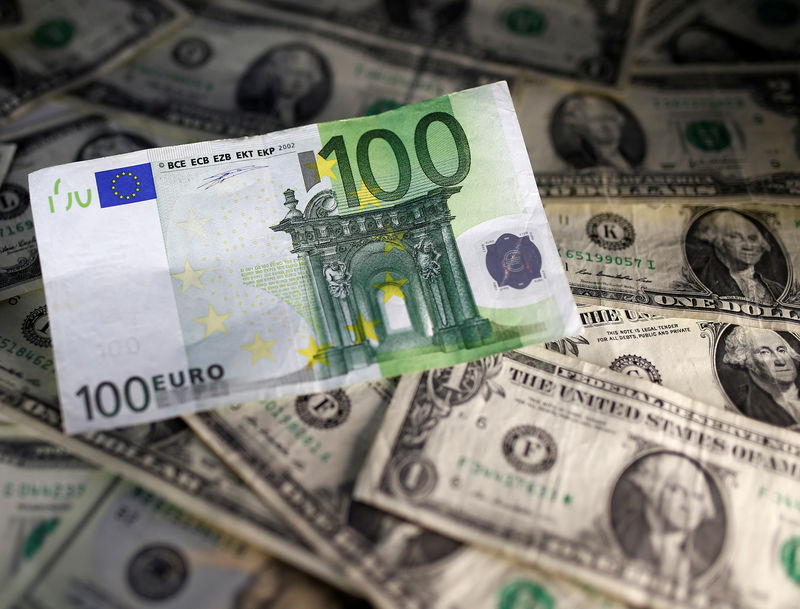Investing.com - The euro extended losses against the dollar on Tuesday, falling to a one-month low as concerns over Germany’s election results and jitters ahead of Catalan’s independence referendum weighed.
EUR/USD hit a low of 1.1718, the weakest level since August 25 and was at 1.1793 by 09:23 AM ET (13:23 GMT), off 0.45% for the day.
The single currency remained on the back foot after German Chancellor Angela Merkel won weekend elections but saw large numbers of voters desert her party for the far right.
Merkel now faces months of coalition talks to try to form a stable government, leaving investors’ worries that political uncertainty could hit the Germany economy and make closer euro zone integration more difficult.
The euro was also facing political risk in Spain with the Catalan government planning to hold a referendum on whether to break away from Spain on Sunday, despite opposition from Spanish authorities.
Sentiment on the euro was also hit after European Central Bank President Mario Draghi said Monday that that "ample" ECB accommodation was still needed and added that currency volatility is a source of uncertainty that requires monitoring.
The euro hit 10-week lows against the pound, with EUR/GBP falling 0.31% to 0.8771.
The single currency was steady against the yen, with EUR/JPY at 132.28.
The U.S. dollar index, which measures the greenback’s strength against a trade-weighted basket of six major currencies, was up 0.4% at 92.81, boosted by the weaker euro.
Investors were looking ahead to a speech by Fed Chair Janet Yellen later in the trading day after the U.S. central bank indicated last week that it is still on track for a third rate hike before the years end.
The dollar moved higher against the yen, with USD/JPY advancing 0.38% to 112.13.
The dollar slid against the yen overnight amid fresh concerns over tensions on the Korean Peninsula.
North Korea's foreign minister said on Monday that U.S. President Donald Trump had declared war on the country and that Pyongyang reserved the right to shoot down U.S. bombers.
The yen is often sought in times of geopolitical tension or market turbulence because Japan has a large current account surplus and traders tend to assume Japanese investors would repatriate funds at times of crisis.
